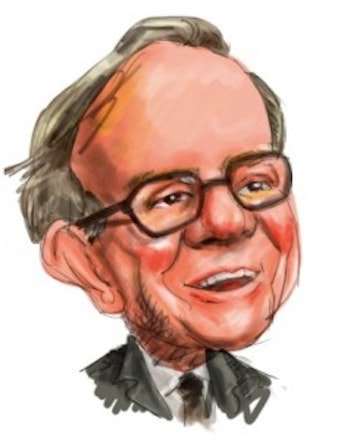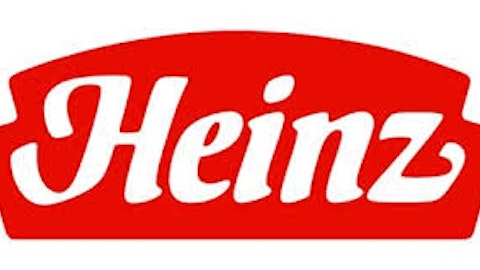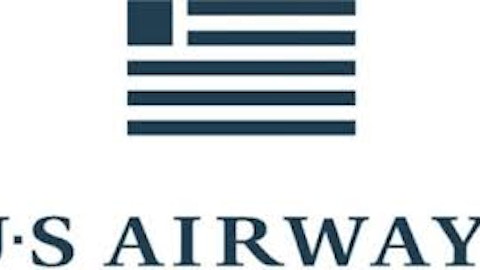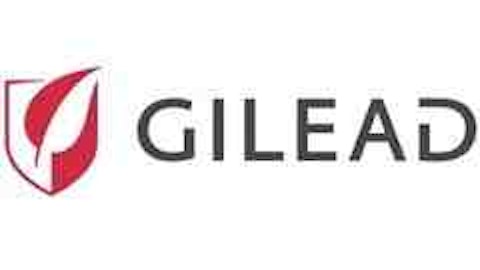
Although Buffett has been leery of investing in airlines since he fared poorly back in the early 1990s with US Airways Group, Inc. (NYSE:LCC), here are some of the reasons that Southwest Airlines should be attractive to the “Oracle of Omaha,” in addition to Foolish investors.
Airlines like Southwest perform a basic, needed function in an economy with a strong consumer base. Warren Buffett favors these types of companies over high-tech entities. As but one example, in 2009 Buffett bought Burlington Northern Sante Fe railroad for $34 billion to add to the portfolio of Berkshire Hathaway Inc. (NYSE:BRK.A). Airlines are just as needed in a modern, functioning economy as railroads. Consumers use the airlines just as they do products from H.J. Heinz Company (NYSE:HNZ), which Buffett just spent billions for in a deal. There are many things that a railroad does better than an airplane, just like there are many vital economic needs that can only be satisfied by air travel.
Southwest Airlines is “the wonderful company” in the air travel industry. Buffett has said that, “It is far better to buy a wonderful company at a fair price than a fair company at a wonderful price.” In the passenger airlines sector, that is Southwest. It has been the only domestic airline to be profitable every year since 1973. Southwest also transports more domestic passengers than any other carrier every year.
As the table below shows, while US Airways, Delta Air Lines, Inc. (NYSE:DAL), and United Continental Holdings Inc (NYSE:UAL) all had a negative profit margin over the last five years, Southwest Airlines was making money for its shareholders! It is also worthy of note that, unlike all of the legacy carriers in the United States, Southwest has never been forced to file for bankruptcy.
In filing for bankruptcy, those airlines were able to dump billions in expenses. Southwest has never done that, which means it has performed far better than the others, as the table below shows.
| Metric | Southwest Airlines | US Airways | Delta Airlines | United-Continental |
| Profit Margin | 2.50% | 4.60% | 2.80% | (1.90%) |
| 5-Year Profit Margin TTM | 2.00% | (2.00%) | (5.00%) | (4.20%) |
Source: The Motley Fool CAPs
Southwest Airlines has a strong cash position. That is appealing to Warren Buffett when considering an investment. The price-to-cash per share ratio for Southwest Airlines is just 2.85. That means there is more than $4 in cash for each share of the stock that is trading around $11.60. By contrast, Berkshire Hathaway, the company for which Buffett is Chief Executive Officer, only has a cash per share ratio of 5.10. At 12.10, the price-to-free cash flow of Southwest Airlines is also far superior to that of 20 for Berskshire Hathaway.
Buffett looks for investments that will pay him to be an owner. He wants cash to be generated from his holdings so that he can use it to buy other assets. Southwest Airlines does this through the payment of a dividend. As the table below shows, Southwest Airlines is the only major carrier to pay a dividend. The low, low dividend payout ratio of Southwest Airlines should appeal to Buffett as it means there is plenty of earnings remaining to increase the dividend, initiate a stock buyback program to raise the share price, or fund a special dividend to reward the shareholders. As an investor, Buffett has a history of forcing management to return cash to its shareholders, in one form or another. Southwest Airlines has a very strong cash position as detailed in the previous paragraph, so it could easily disperse funds to its shareholders through a variety of mechanisms.
| Metric | Southwest Airlines | US Airways | Delta Air Lines | United Continental (NYSE:UAL) |
| Dividend | 0.34% | n/a | n/a | n/a |
| Dividend Payout Ratio | 6.09% | n/a | n/a | n/a |
Source: Finviz
Southwest provides the cash that Buffett wants to use buy other assets, rather than have to pay debt. Unlike competitors such as Delta Air Lines, United-Continental, and US Airways, Southwest does not carry nearly as much debt, as shown by the table below. Buffett abhors debt: the debt-to-equity ratio for Berkshire Hathaway is just 0.34.
| Metric | Southwest Airlines | US Airways | Delta Air Lines | United Continental |
| Debt-toEquity Ratio | 0.50 | 6.02 | 11.86 | 6.70 |
Source: The Motley Fool CAPs and YCharts.
The table above reveals how efficient the cash management is at Southwest Airlines, as it required only $0.50 of borrowing to produce every $1 of equity. For Delta Air Lines, by contrast, $11.86 in debt has been needed to create $1 in equity. For United-Continental it has taken $6.70, and $6.02 for US Airways. It should be noted that if US Airways ends up with American Airlines in an arrangement, its debt-to-equity ratio is likely to rise much higher.
These factors all result in a broad economic moat for Southwest Airlines, which is something that’s highly valued by Buffett. In a book about Warren Buffett by Alice Schroeder, “The Snowball Warren Buffett and the Business of Life,” an economic moat is described as the factors that protect a business against competition and time. The economic moat of Southwest Airlines is manifested in that it is the only airlines that has been profitable since 1973, and has never filed for bankruptcy.
Moreover, earnings should continue improving for Southwest. The costs of assimilating AirTran have been borne. Greater revenue is being generated from more fees such as charging for early boarding passes and priority seating. EPS is up by more than 140% this year as a result.
Back in July, Southwest Airlines was recommended. On July 25, 2012, Southwest Airlines was trading for under $8.50 a share. Now it is around $11.60. A return of more than one-third in less than 8 months for “a wonderful company” should appeal to even “The Oracle of Omaha.”
The article Should This Major Airline Be the Next Warren Buffett Buy? originally appeared on Fool.com and is written by Jonathan Yates.
Copyright © 1995 – 2013 The Motley Fool, LLC. All rights reserved. The Motley Fool has a disclosure policy.





